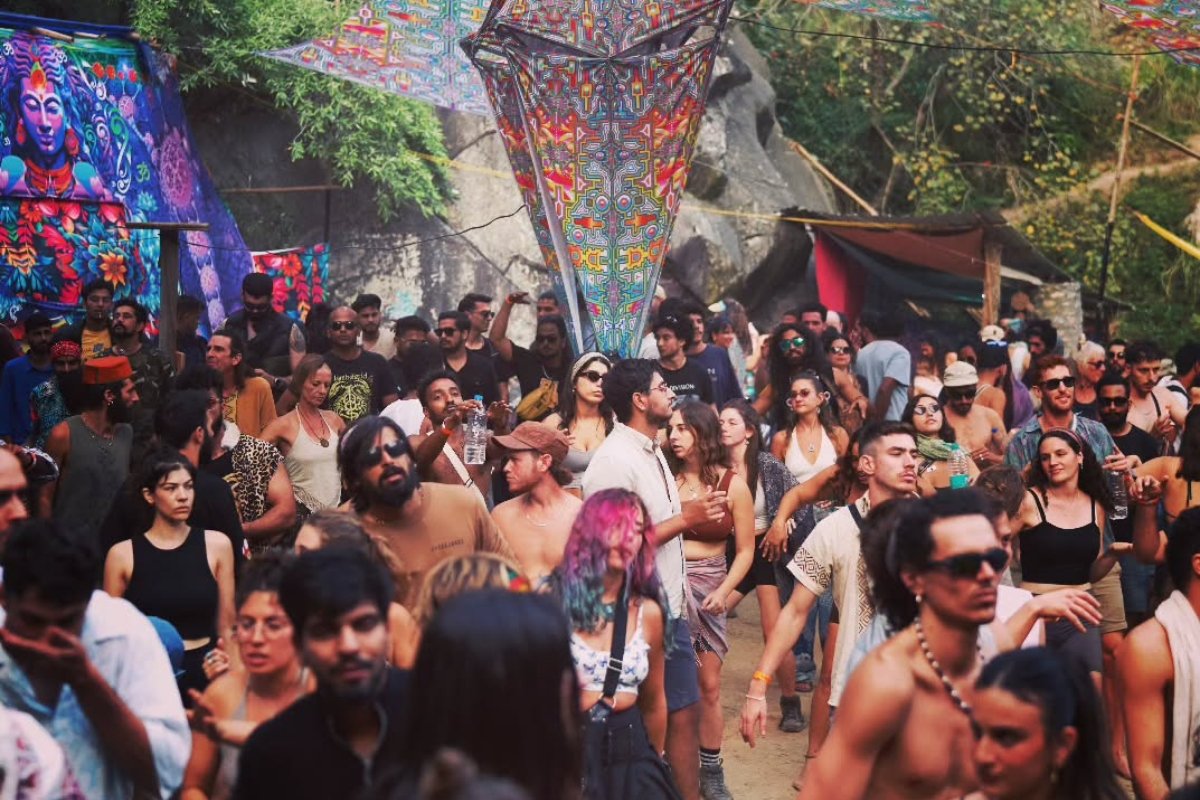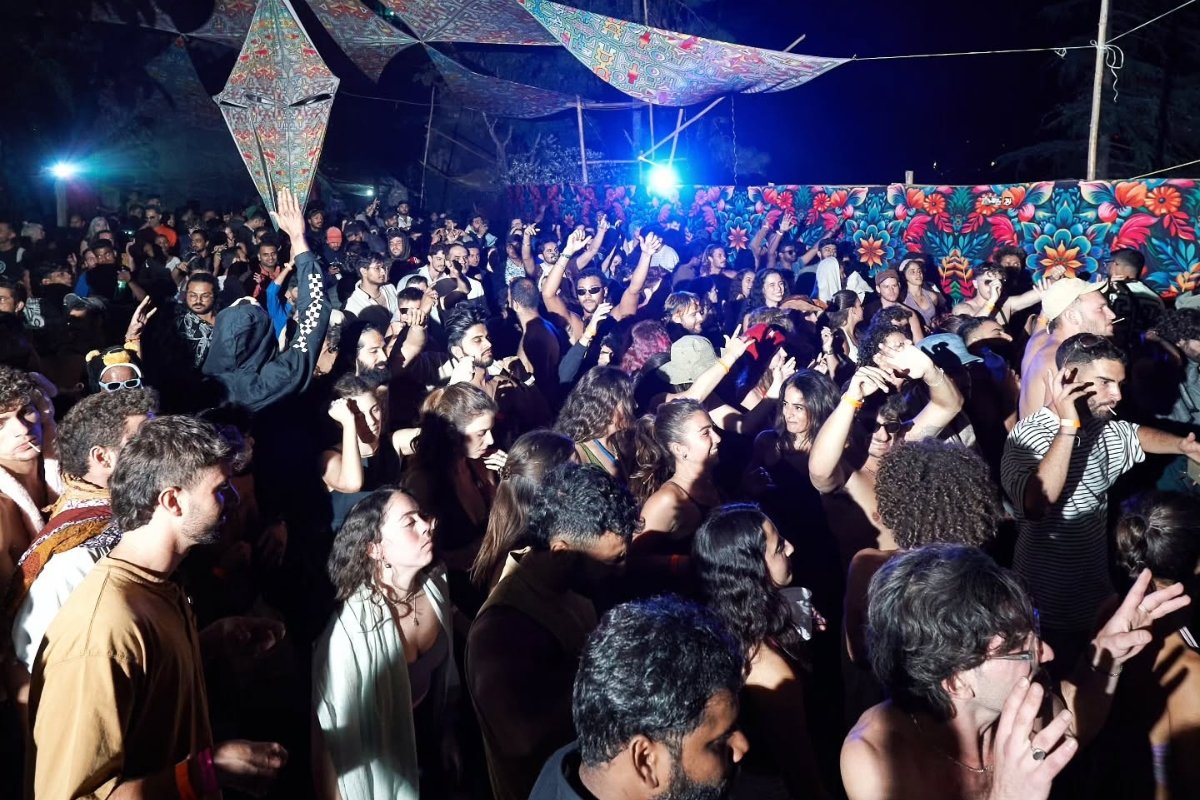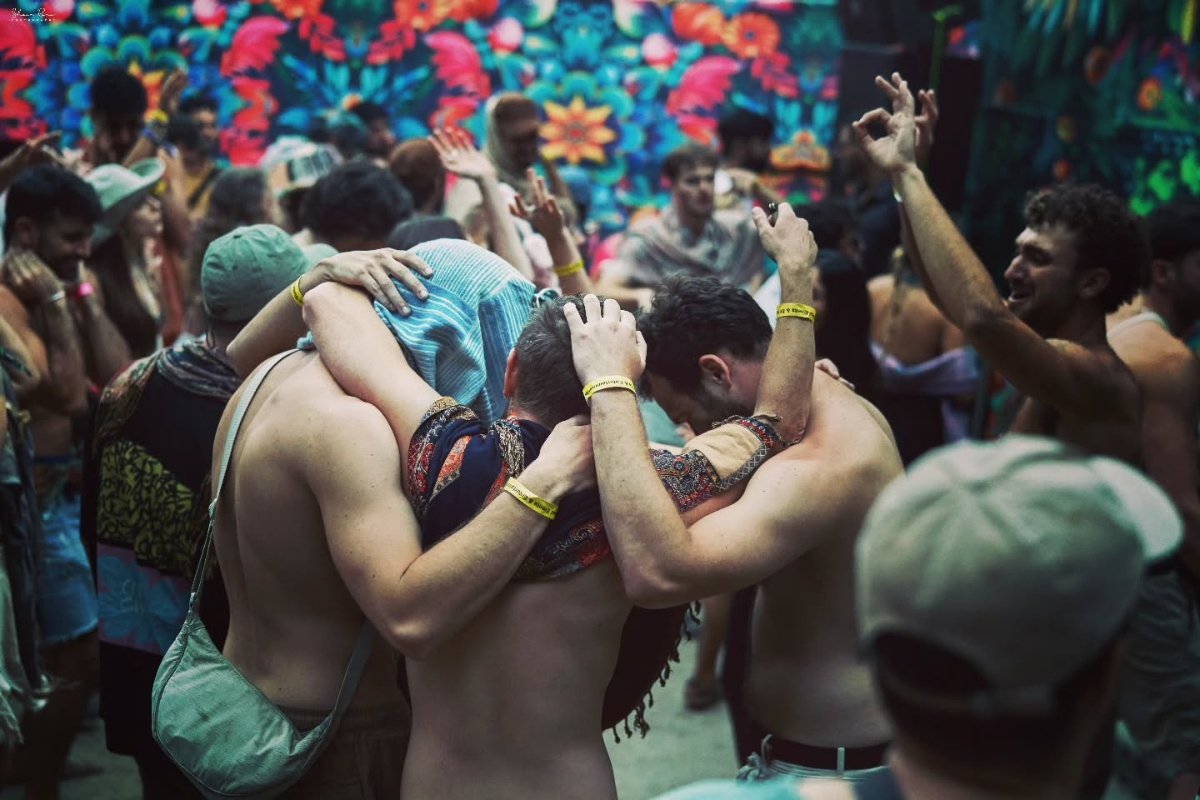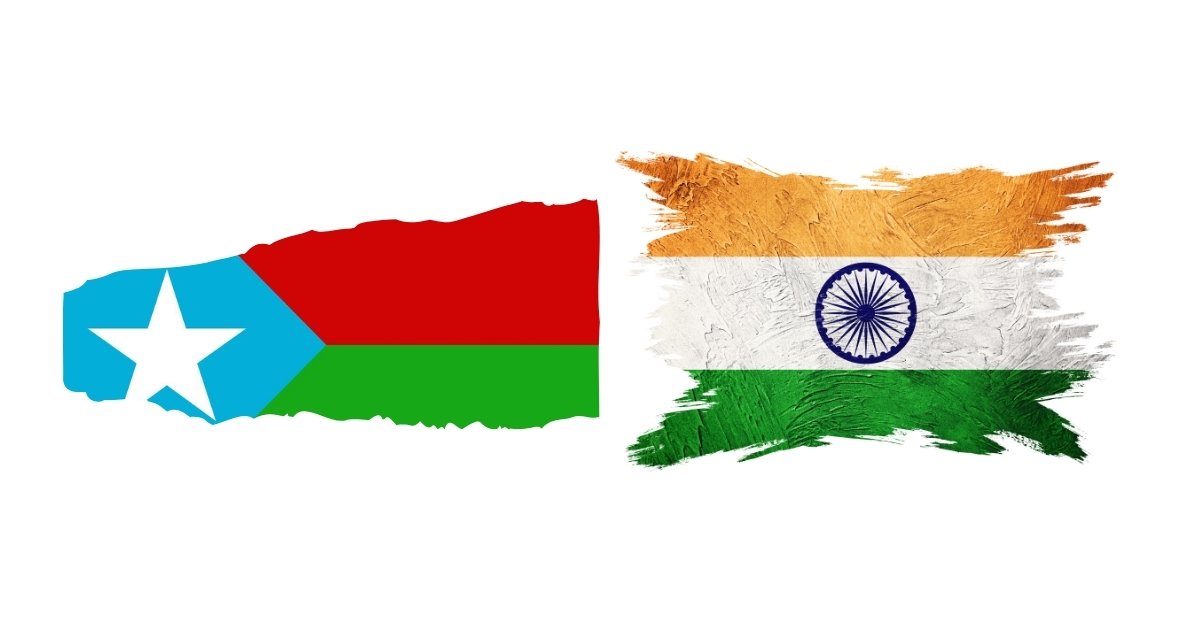Table Of Contents
Introduction: A Himalayan Home For Israeli Wanderers

Tucked away in the breathtaking Himalayas, Himachal Pradesh is a paradise of emerald valleys, misty peaks, and vibrant cultures.
Among its many visitors, one group stands out: Israeli tourists, who have transformed villages like Kasol and Dharamkot into cultural enclaves dubbed “Mini Israel” and “Tel Aviv of the hills.”
Hebrew signs, falafel stalls, and Chabad houses create a slice of Israel in India’s mountains.
However, what fuels this unique migration, and could Israel’s famed intelligence agency, Mossad, be quietly safeguarding its citizens here?
In this deep dive, we unravel the allure of Himachal Pradesh for Israelis, the cultural and economic ripple effects, the robust security measures, and the whispered speculation about Mossad’s presence.
Why Himachal Pradesh Captivates Israeli Tourists

Every year, thousands of Israelis, especially young adults fresh from mandatory military service, flock to Himachal Pradesh.
The state’s appeal is a blend of natural splendour, cultural comfort, and practical perks, making it a haven for soul-searching travellers.
A Post-Military Sanctuary
Israel’s mandatory military service, lasting two to three years, is a formative but gruelling experience.
Afterwards, many young Israelis seek destinations to decompress and rediscover themselves.
Himachal Pradesh, with its serene landscapes and laid-back vibe, is a perfect fit.
As Noam, a 23-year-old backpacker, shared on a travel forum:
“After the army, I needed peace. Kasol’s mountains and rivers gave me that.”
Trekking in the Parvati Valley or meditating in Dharamkot offers a therapeutic escape from the intensity of military life.
A Taste Of Home
What makes Himachal Pradesh unique is its embrace of Israeli culture.
In Kasol, restaurants serve Shakshouka and hummus, while cafes play Hebrew music.
Local shopkeepers greet visitors with “Shalom,” and Hebrew signs guide the way.
“It is like Israel but with Himalayan views,” said Sarah, a frequent visitor.
Chabad houses and Jewish community centres offer religious services and social events, fostering a sense of belonging.
This cultural familiarity turns villages into home-away-from-home hubs for Israeli travellers.
Adventure And Natural Beauty
Himachal’s rugged terrain and pristine landscapes are a magnet for adventure seekers.
Kasol’s Parvati River invites rafting and fishing, while Dharamkot’s trails lead to stunning Himalayan vistas.
Moderate treks like those in the Tirthan Valley cater to both novices and seasoned hikers.
The state’s blend of adrenaline-pumping activities and tranquil settings appeals to Israelis craving both excitement and calm.
Budget-Friendly Bliss
Affordability is a key draw.
Himachal offers budget guesthouses and homestays, which are ideal for young travellers on extended journeys.
While upscale options like the Hyatt Regency in Dharamkot have emerged, budget accommodations remain plentiful.
A night in a Kasol guesthouse can cost as little as $10, making long stays feasible for backpackers.
A Safe Haven
India is seen as a safe destination for Israelis, free from widespread anti-Semitism.
Himachal’s welcoming locals and low crime rates enhance this perception.
Unlike some global hotspots, the state has no history of targeted threats against Israeli tourists, making it a worry-free retreat.
| Destination | Why Israelis Love It |
|---|---|
| Kasol | “Mini Israel” with Hebrew signs, Israeli cuisine, and Parvati Valley treks |
| Dharamkot | Chabad house, Himalayan trails, and a vibrant backpacker scene |
| Manali | Adventure sports like paragliding, bustling markets, and scenic beauty |
| Mcleodganj | Tibetan culture, yoga retreats, and proximity to Dharamkot |
Cultural And Economic Impacts

The wave of Israeli tourists has reshaped Himachal’s social and economic landscape, creating a vibrant cultural exchange while sparking occasional challenges.
Local Businesses Embrace Israel
In Kasol and Dharamkot, businesses have tailored their offerings to Israeli preferences.
Cafes serve falafel and pita, and guesthouses advertise in Hebrew.
Some locals have learned basic Hebrew phrases, bridging communication gaps.
This adaptation has turned these villages into cultural hubs, with an estimated 70% of foreign tourists being Israeli, according to a 2017 report.
The result?
A thriving tourism economy that feels distinctly Israeli.
Chabad Houses: Community Anchors
Chabad houses are more than religious centres; they are lifelines for Israeli tourists.
In Dharamkot, the Chabad house hosts Shabbat dinners and holiday celebrations, drawing hundreds of travellers.
It also offers counselling for those struggling with issues like drug use, a concern in some backpacker circles.
These centres foster community and cultural pride while inviting locals to join events, enriching cross-cultural ties.
Economic Boom
The Israeli influx has fueled economic growth.
In 2023, Himachal welcomed 62,806 foreign tourists, a tenfold increase from 2021, with Israelis a significant share.
This surge has spurred new hotels, restaurants, and tour agencies, creating jobs for locals.
For example, Kasol’s tourism sector employs hundreds in hospitality, from guides to cooks.
However, the shift toward high-end resorts risks pricing out budget travellers, a balancing act for local economies.
Cultural Exchange And Tensions
The exchange between Israelis and locals is largely positive.
Israelis embrace yoga and local festivals, while Himachalis adopt Israeli foods and phrases.
However, some locals note that Israeli tourists often stick to their groups, limiting deeper integration.
Reports of drug use in Kasol have also raised concerns, though authorities address these through patrols and awareness campaigns.
Despite these hiccups, the cultural blend remains a net positive.
| Impact | Details |
|---|---|
| Business | Hebrew signage, Israeli menus, and staff fluent in Hebrew |
| Community | Chabad houses host events, fostering Israeli-local bonds |
| Economy | Job creation in tourism, growth in the hospitality sector |
| Challenges | Limited integration, occasional drug-related concerns |
Security: Keeping Tourists Safe

Himachal Pradesh prioritises tourist safety, with tailored measures for Israeli visitors, especially during global tensions.
While local police lead these efforts, the India-Israel partnership raises questions about behind-the-scenes coordination.
Everyday Safety Measures
The Himachal Pradesh Tourism Department provides clear safety guidelines:
- Avoid cliffs and riverbanks due to strong currents.
- Drive cautiously, especially at night, and wear seat belts.
- Keep emergency contacts for police and tourist offices handy. These rules ensure a secure experience for all visitors, from trekkers to backpackers.
Heightened Security For Israelis
Israeli tourists receive extra attention during international incidents.
After the 2021 IED blast near the Israeli Embassy in Delhi, Kangra police ramped up security in McLeodganj and Dharamkot, deploying extra patrols.
The 2025 Pahalgam terror attack in Jammu and Kashmir, which killed 26, prompted statewide measures, including stricter border checks and surveillance in tourist hubs like Kullu-Manali and Shimla.
As Inspector General Satwant Atwal noted, “We have increased vigilance to ensure tourists feel safe.”
Global Events And Rapid Response
During the 2023 Hamas-Israel conflict, many Israeli tourists left Himachal to join their country’s efforts, with police ensuring the safety of those who stayed.
“Most of us are heading back to Delhi, then home,” said Hannah, a tourist in Dharamkot.
Local authorities reviewed security protocols, adding patrols around Chabad houses and guesthouses.
These swift responses highlight Himachal’s commitment to protecting its visitors.
| Security | Purpose |
|---|---|
| Extra Patrols | Deter threats in tourist-heavy areas like Kasol |
| Border Checks | Monitor vehicles and IDs post-2025 Pahalgam attack |
| Surveillance | Watch bus stands, temples, and tourist sites |
| Community Alerts | Encourage reporting of suspicious activities |
The India-Israel Bond: A Security Backbone

The robust relationship between India and Israel shapes the safety net for Israeli tourists in Himachal Pradesh, with historical ties hinting at possible intelligence cooperation.
A Long-Standing Partnership
India and Israel formalised diplomatic ties in 1992, but their intelligence collaboration began in 1968 when India’s Research and Analysis Wing (RAW) and Mossad aligned to counter regional threats.
This partnership has grown, spanning defence, cybersecurity, and counter-terrorism.
For instance, the Barak-8 missile system, co-developed by Indian and Israeli firms, underscores their strategic alliance.
Intelligence And Tourist Safety
While no public evidence confirms Mossad’s direct role in Himachal Pradesh, the agency’s mandate to protect Israeli citizens abroad suggests potential involvement.
Historical examples, like Mossad’s 1991 role in freeing an Israeli hostage in Jammu and Kashmir, show its reach in India.
Given the 2,000–2,500 Israeli tourists in Himachal annually, intelligence-sharing between RAW and Mossad likely supports local police efforts, ensuring a discreet but effective safety net.
| Aspect | Details |
|---|---|
| Historical Ties | RAW-Mossad collaboration since 1968 |
| Current Cooperation | Defence, cybersecurity, and counter-terrorism |
| Tourist Safety | Likely intelligence-sharing for Israeli visitors |
Mossad In Himachal Pradesh: Fact Or Fiction?

The question of Mossad’s activities in Himachal Pradesh sparks curiosity, fueled by the agency’s global reputation and the state’s Israeli tourist boom.
Mossad, known for covert operations and citizen protection, could plausibly monitor areas like Kasol, where thousands of Israelis gather.
However, no concrete evidence supports specific operations here.
Speculation often stems from the high number of tourists; around 20,000 Israelis visit annually, but this remains unverified.
The India-Israel alliance suggests that any Mossad role would be subtle, likely limited to intelligence-sharing with Indian authorities rather than visible operations.
As one local official put it, “Security is our job. We work with all nations to keep tourists safe.”
Social Media And Public Perception

Social media platforms like Reddit buzz with theories about Israeli tourists, from cultural observations to unfounded claims of the “Israeli mafia” in Kasol.
These discussions, while lively, lack official backing and often amplify stereotypes.
A 2024 meme humorously compared Himachal’s “Samosa Investigation Department” to Mossad, reflecting a public fascination with intelligence agencies.
Such chatter underscores the need for credible information over conjecture, especially when discussing sensitive topics like security.
Looking Ahead: A Growing Connection

As Himachal Pradesh continues to charm Israeli tourists, its tourism sector is poised for growth.
The state’s 2023 foreign tourist numbers signal a rebound from pandemic lows, with Israelis driving much of the demand.
Future developments, like eco-friendly resorts or cultural festivals, could deepen the Israeli-Himachali bond.
Security will remain paramount, with local police and potential international support ensuring safety.
Whether Mossad plays a role or not, the shared commitment to protecting visitors keeps Himachal a beacon for global travellers.
Conclusion: A Himalayan Tapestry Of Cultures

Himachal Pradesh’s embrace of Israeli tourists has woven a rich cultural tapestry, blending Himalayan tranquility with Israeli vibrancy.
From Kasol’s Hebrew signs to Dharamkot’s Chabad gatherings, the state offers a unique haven for travellers.
Robust security measures, underpinned by the India-Israel partnership, ensure safety amid global uncertainties.
While Mossad’s presence remains a tantalising mystery, the real story is the human connection between locals and Israelis sharing food, music, and mountains.
At THOUSIF Inc. – INDIA, we are passionate about uncovering such global stories.
Explore more travel tales and cultural insights on our website, and let Himachal inspire your next adventure!
Trivia: A Surprising Connection

Did you know that Kasol’s nickname “Mini Israel” inspired a local cafe to create a fusion dish called “Himalayan Hummus”? It blends traditional Israeli hummus with Himachali spices, symbolising the cultural harmony between the two communities.





